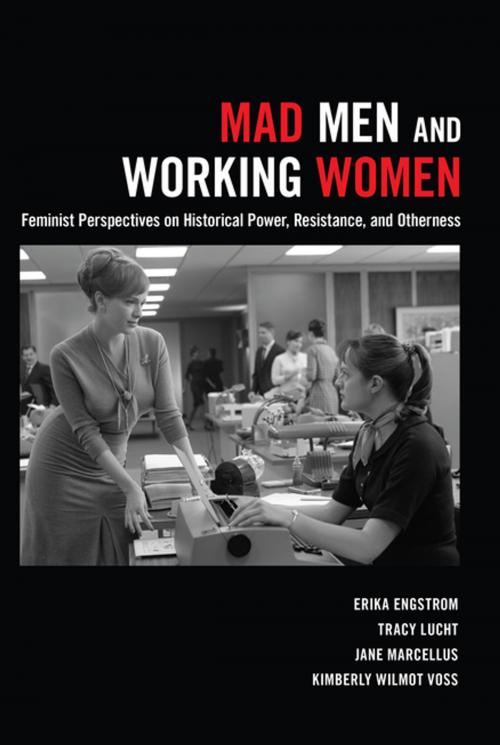Mad Men and Working Women
Feminist Perspectives on Historical Power, Resistance, and Otherness
Nonfiction, Reference & Language, Language Arts, Communication, Entertainment, Performing Arts, Television, History| Author: | Jane Marcellus, Tracy Lucht, Kimberly Wilmot Voss, Erika Engstrom | ISBN: | 9781454198581 |
| Publisher: | Peter Lang | Publication: | March 11, 2016 |
| Imprint: | Peter Lang Inc., International Academic Publishers | Language: | English |
| Author: | Jane Marcellus, Tracy Lucht, Kimberly Wilmot Voss, Erika Engstrom |
| ISBN: | 9781454198581 |
| Publisher: | Peter Lang |
| Publication: | March 11, 2016 |
| Imprint: | Peter Lang Inc., International Academic Publishers |
| Language: | English |
This book was featured as one of thirty-four Epic Feminist Books in Teen Vogue magazine.
This book offers interpretive and contextual tools to read the AMC television series Mad Men, providing a much-needed historical explanation and exposition regarding the status of women in an era that has been painted as pre- or non-feminist. In chapters aimed at helping readers understand women’s lives in the 1960s, Mad Men is used as a springboard to explore and discover alternative ways of seeing women. Offering more than a discussion of the show itself, the book offers historical insight for thinking about serious issues that «modern» working women continue to face today: balancing their work and personal lives, competing with other women, and controlling their own bodies and reproductive choices. Rather than critiquing the show for portraying women as victims, the book shows subtle (and sometimes not-so-subtle) ways that feminism functioned in an era when women were supposedly caught between the «waves» of the women’s movement but when, the authors argue, they functioned nonetheless as empowered individuals.
By doing so, it provides historical context and analysis that complicates traditional interpretations by (1) exploring historical constructions of women’s work; (2) unpacking feminist and non-feminist discourses surrounding that work; (3) identifying modes of resistance; and (4) revisiting forgotten work coded as feminine.
This book was featured as one of thirty-four Epic Feminist Books in Teen Vogue magazine.
This book offers interpretive and contextual tools to read the AMC television series Mad Men, providing a much-needed historical explanation and exposition regarding the status of women in an era that has been painted as pre- or non-feminist. In chapters aimed at helping readers understand women’s lives in the 1960s, Mad Men is used as a springboard to explore and discover alternative ways of seeing women. Offering more than a discussion of the show itself, the book offers historical insight for thinking about serious issues that «modern» working women continue to face today: balancing their work and personal lives, competing with other women, and controlling their own bodies and reproductive choices. Rather than critiquing the show for portraying women as victims, the book shows subtle (and sometimes not-so-subtle) ways that feminism functioned in an era when women were supposedly caught between the «waves» of the women’s movement but when, the authors argue, they functioned nonetheless as empowered individuals.
By doing so, it provides historical context and analysis that complicates traditional interpretations by (1) exploring historical constructions of women’s work; (2) unpacking feminist and non-feminist discourses surrounding that work; (3) identifying modes of resistance; and (4) revisiting forgotten work coded as feminine.















